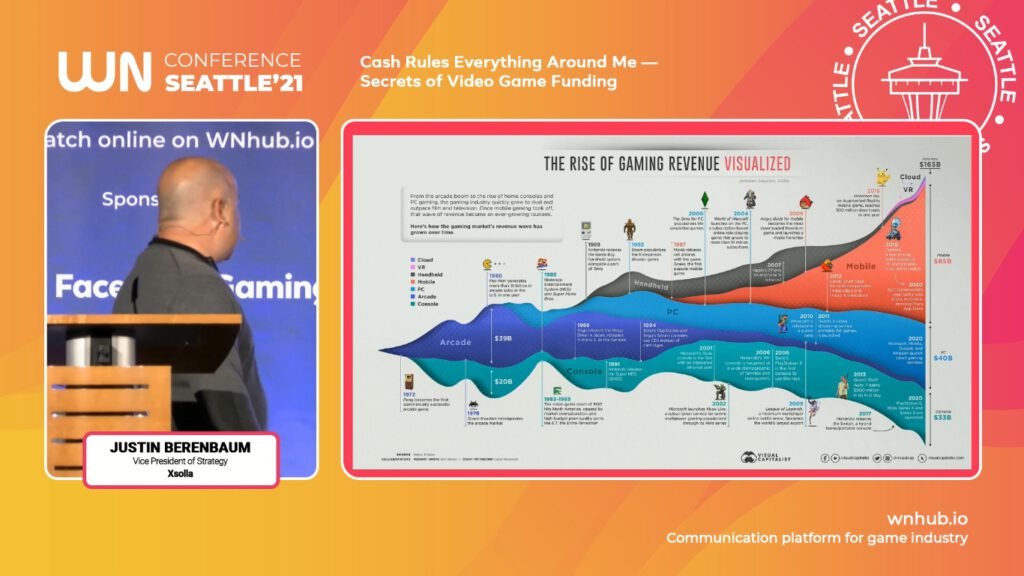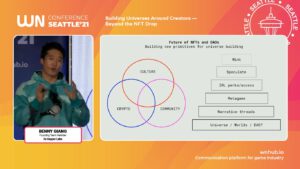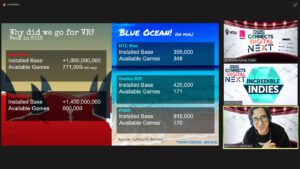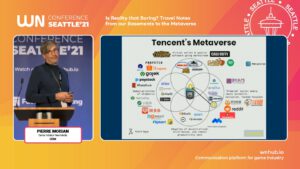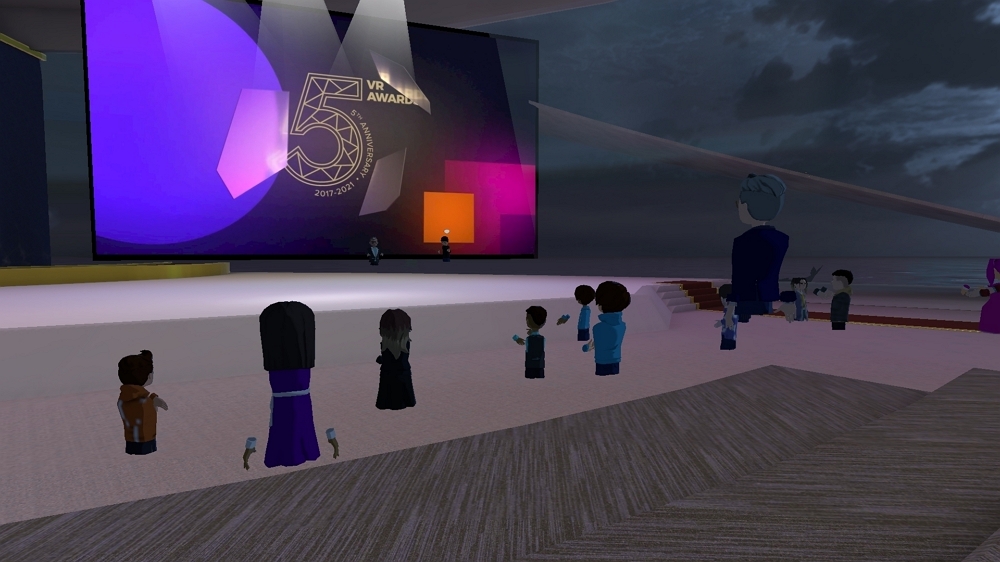The period of time between Halloween and Thanksgiving is a particularly busy one with media conferences: GamesBeat Summit Next, PocketGamersConnect, BeyondGames and WhiteNights Seattle followed each other in close succession. They all played tricks and treats with the season’s buzzwords ‘Metaverse’ and ‘NFT’, trying to nail jelly to trees while losing sight of the woods. The more stabs they made for clarification, the more indistinguishable became examination from obfuscation.
In fact, the interactive entertainment industry is heavily fueled by venture capital coming in from crypto technology investment funds. The industry tries to steer the flooding with high concept propositions, pretending to provide orientation without curbing investor fantasies. GamesBeat Summit Next presented a Metaverse ETF and proclaimed the ‘leisure economy’ based on play-to-earn monetization concepts. Pocket Gamers Connect Next sarcastically advised developers to simply throw these buzzwords into their investment decks, then take the money and run. WN Seattle distinctively spoke of ‘smart money, stupid money and dangerous money’ in between their many lectures of cryptic marketing lingo.
Whenever concrete use cases should have helped to exemplify the general viability of these concepts, the numbers were impressive for individual success stories, indeed. But the application frameworks were always based on fundamentally speculative market segments, operating mostly with wildcat securities. The snobbish art market does not become more trustworthy with NFT, nor does fetish-driven merchandising, and gold mining is not even playfully more acceptable in a Metaverse. A singleton oasis in the wasteland like Las Vegas cannot transfer its dubious footings to Macau, not to speak of Monte Carlo, Blackpool or Baden-Baden. It does not even resonate on a local level with Atlantic City.
The crypto technology concept definitively is a potential alternative to former ‘new economy’ leverages in an imbalanced digital business structure. But this unproven evaluation and exchange method is not the meta level in the Metaverse, as it applies more to the current internet with a revaluation of virtual goods. At least, the British conventions Pocket Gamers and Beyond Games repeatedly insisted on discussing XR perspectives for leveraging the digital world to a new level, while US-based GamesBeat featured ‘anything goes’ on all levels for big spender attitudes, and the US-American edition of WhiteNights went into promotion mode on a never-ending disc world.
Nevertheless, these vivid conference activities could unveil that the high-flying concepts and use cases were in line with a thriving game industry, even if this industry also struggles with high-level production pipelines. They need to be restructured for remote working on the software side, and they suffer from microchip shortages on the hardware side. If one takes into account how much time it took for this industry to shake off gambling associations and censorship concerns (still handled rigidly in major markets like China), then the actual uplifting of motivation talks causes some worries for prohibition with good reason.
By comparing the swiftly promoted next level of gaming with the industrial players’ actual activities in setting up a Metaverse with Virtual Reality, the outcome can be shockingly horrific. At the end of my online convention metathon, I visited the VR Awards in Altspace VR. To attend the ceremony, it was mandatory to connect my Altspace account with my Microsoft account by remembering a complicated code seen in the headset that had to be typed into a specific webpage on my desktop and then verified again with account passwords in my headset. If this multi-display lottery game worked, and you were not kicked out in between the verification steps nor experienced loading problems in the virtual world, then you were good to go for a visually impressing onboarding journey. If not, you were hopping between headset and screen for the rest of the evening in an endless verification loop.
Eventually, after overcoming all corporate hurdles, I realized with my front-heavy Oculus Quest headset that the social VR event mostly consisted of video presentations. I could as well follow them in a screened video stream on YouTube, which I did, for the sake of my neck. As long as the Metaverse will be envisioned by corporations trying to keep it in their lower-level business fields, there won’t be any evidence for any elevation going beyond our current flat world perceptions. The Metaverse stays a page turner restricted exclusively to literature alone.
For immersive media navigation, NFT and Metaverse are hollow spirits, whose treats and tricks offer disguises for crooked social media structures, inflationary streaming services and screen-oriented tech corporations to play games with their own specters. It’s an essentially conservative distraction: instead of new beginnings on another level, the usual suspects rely on the same procedure as every year at the turkey dinner table. As long as they are trapped in their own phantasms, there is opportunity for reformation for those who are not easily awed by ghost stories.

